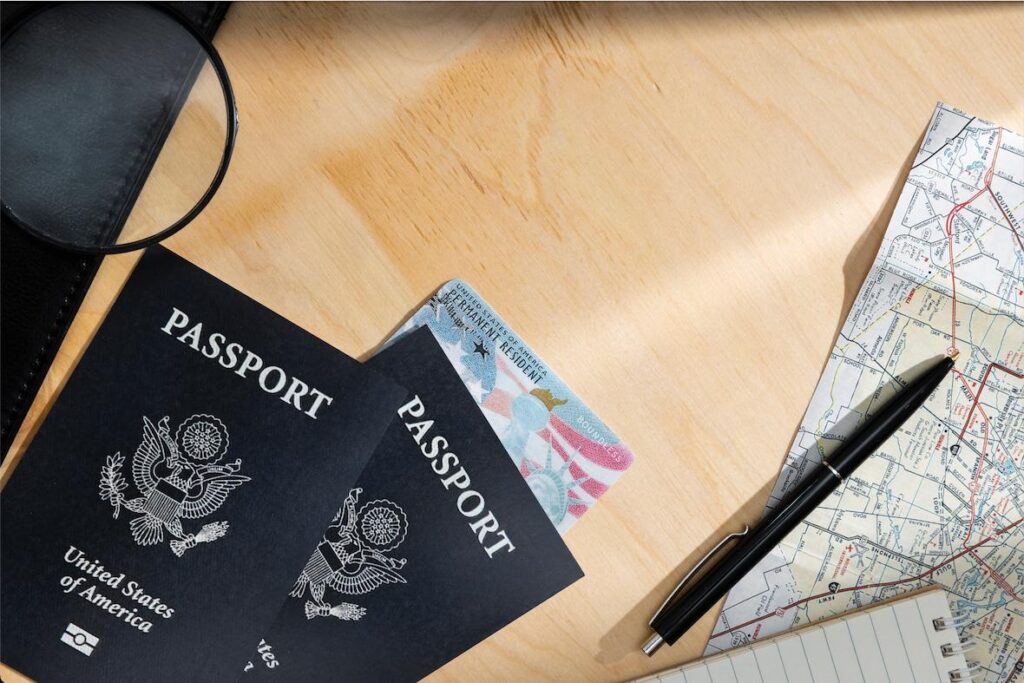Your U.S. passport might not be sufficient by itself for international matters. Many countries demand an Apostille certification on U.S. passport copies to confirm their authenticity.
Foreign governments and institutions frequently request this verification. The Apostille serves as a specialized certificate that validates a public official’s signature on documents used internationally. The Hague Convention of 1961 created this standardized authentication method, and countries like Germany, Spain, and France actively participate in this system.
You might be asking yourself about the necessity of an Apostille for your passport copy. This piece covers everything about getting your Apostille for U.S. Passport effectively. We’ll explore the requirements, process, and common scenarios that require this certification.
Understanding Passport Apostille Requirements

The Apostille system has transformed how we verify international documents since the Convention of 1961. Today, more than 125 countries use this simplified process.
You should know what this certification does before you ask for an apostille for U.S. passport copy. An apostille checks three things:
- The signature’s authenticity on the document
- The official’s role when they signed
- Any seal or stamp’s identity on the document
An apostille does not confirm what’s inside your passport copy. It just proves the document was handled properly at an international level.
Your passport copy’s need for an apostille depends on where you plan to use it. Countries fit into two groups:
- Hague Convention members – Need just an apostille certificate
- Non-Convention countries – Need several authentications through embassies or consulates
U.S. passport copies follow strict rules. State documents need an apostille from that state’s secretary of state. Federal documents need one from the U.S. Department of State.
Getting a properly apostille passport copy takes several steps. Many places want a notarized copy of your passport first. Each state’s notary rules for passports are different. To cite an instance, Iowa lets notaries certify passport copies, but Texas usually says no.
Your destination country’s status matters too. Countries outside the Hague Convention need authentication certificates instead of apostilles. This process needs:
- State-level authentication
- U.S. Department of State certification
- The destination country’s embassy must legalize it
Learning these rules early helps you save time. It also keeps your documents from being rejected when you need them most.
Step-by-Step Process to Apostille Your U.S. Passport

The apostille for U.S. passport process follows specific steps that change based on your state and the authentication service you choose.
Step 1: Get a Notarized Copy of Your Passport
You’ll need a notarized copy of your passport to start. Never send your original passport. Make a photocopy and ask a notary public to certify it as a true copy. Your state might need specific affidavit forms.
Step 2: Prepare Required Documents
Your application needs these items:
- Your notarized passport copy
- A cover sheet showing the country where you’ll use the document
- Payment for fees
- A self-addressed, stamped return envelope
Step 3: Pay the Required Fees
Each state has different fees. California charges $20.00 per Apostille and adds a $6.00 Special Handling fee for each public official’s signature that needs authentication. States like Illinois keep it simple at $2.00 per document.
Step 4: Submit Your Request
You can choose between two ways to submit:
Mail Submission:
Pack all documents and send them to your state’s Secretary of State office. The process usually takes 1-3 weeks.
In-Person Submission:
Head to your state’s Secretary of State office. Many offices handle documents right away on a first-come, first-served basis.
Step 5: Track Your Request
Offices process documents in order of arrival. Overnight shipping services with tracking can help urgent requests reach their destination faster, though the processing time stays the same.
Step 6: Expedited Services (Optional)
Urgent requests have several options:
- Same-day processing at select Secretary of State offices
- 24-hour apostille services through third-party providers
- Express apostille services for federal documents
Federal documents need apostilles from the U.S. Department of State, which takes several weeks unless you speed it up. Check all document requirements for your destination country before submitting anything to avoid problems or delays.
Apostille Requirements: This section outlines the necessary documents and conditions needed to obtain an apostille for U.S. passport copies.
| Requirement | Description |
| Valid Passport Copy | A clear copy of the passport is required. |
| Application Form | Completed application form for apostille. |
| Payment Receipt | Proof of payment for the service. |
| Additional Documents | Any other documents as specified by the authority. |
Common Situations Requiring an Apostille For U.S.Passport Copy
You need official verification of identity documents for many international activities. An apostilled passport copy provides globally recognized proof of your identity in specific situations.
Most academic institutions require an apostilled U.S. passport copy if you plan to study abroad. Schools ask for this document when they review applications for enrollment or scholarship eligibility. You’ll also need authenticated passport copies if you apply for study visas, especially when you have European countries like Italy in mind.
Job seekers abroad usually need an apostille for U.S. passport copies to apply for work permits. Authentication confirms your citizenship status with potential employers and immigration authorities, especially when you have qualifications that need verification.
Apostilled passport copies are vital components of your application package if you’re pursuing dual citizenship. The receiving country needs to verify that your U.S. identity documents are legitimate. You’ll also need these copies for international marriages, where they serve as a basic requirement.
Companies of all sizes need document authentication for cross-border business. Setting up an overseas presence, opening foreign bank accounts, or handling international transactions requires apostilled copies of corporate documents and sometimes executive passport copies. These certifications build trust between international business partners and help prevent fraud.
Dealing with a loved one’s death overseas requires apostilled documentation. You need authenticated identification papers to arrange foreign burial or bring remains back home.
Note that the apostille process changes based on your destination country. An apostille from your state’s Secretary of State office works for Hague Convention member countries like Germany, Spain, and France. Non-member countries need extra authentication through the U.S. Department of State and possibly legalization through their embassy.
You should plan ahead since getting these authentications takes several weeks unless you use expedited services.
Conclusion
U.S. passport copies need proper authentication when you deal with international matters. This applies to students going abroad, job seekers, and business professionals who handle international transactions. The right document authentication will make a big difference in getting what you need.
Knowing the difference between Hague Convention member countries and non-member nations is crucial. This knowledge helps you determine the exact authentication process and saves time during important international procedures.
The process may look complex at first glance. However, preparing your documents ahead of time and following the right steps will give you smooth authentication of your passport copies.
This knowledge will help you handle document verification requirements confidently in your international activities.
Trust Oregon Apostille Hub for dependable document authentication, including apostille for U.S. passport copies.
With our experience, accuracy, and commitment to service, we ensure your apostille process is smooth, timely, and fully compliant.
Serving all of Oregon with care—reach out today for expert guidance you can rely on.

